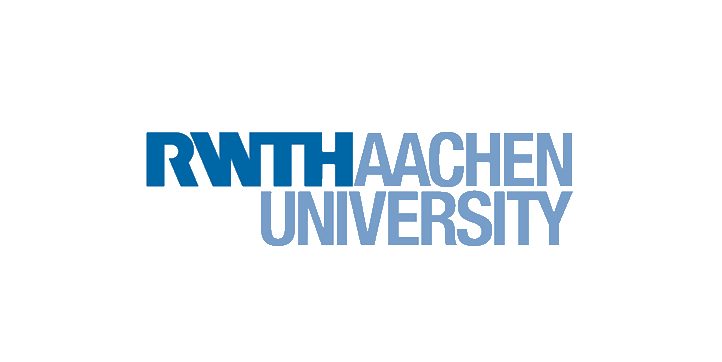RWTH: ERC Advanced Grants for Martin Grohe and Heinz Pitsch
RWTH professors receive funding for “leading researchers throughout Europe”. Pitsch is awarded this for the second time.
The RWTH professors Martin Grohe and Heinz Pitsch are funded by the European Research Council – ERC for short – with so-called Advanced Grants. These are among the most prestigious funding instruments in the European Union. According to the ERC, the Advanced Grants are aimed at “leading researchers throughout Europe”. Martin Grohe holds the Chair for Computer Science 7 (Logic and Theory of Discrete Systems), Heinz Pitsch holds the Chair for Technical Combustion. Pitsch is the first scientist at RWTH to be awarded an Advanced Grant for the second time. Both professors are now being funded by the ERC for five years each with around 2.5 million for their research and the necessary equipment.
Professor Heinz Pitsch
Univ.-Prof. Dr.-Ing. As head of the RWTH Institute for Combustion Technology, Heinz Pitsch is primarily involved in research into renewable energy sources in the field of thermochemical energy conversion. Hydrogen-based fuels play a special role here, as they do not cause any climate-damaging exhaust gases and can be used very well for storing and transporting the energy produced by solar and wind power plants. Combustion offers great advantages for the energetic use of hydrogen, but at the same time it is associated with challenges that are to be investigated, understood and used in the HYDROGENATE research project. In contrast to conventional fuels, combustion with hydrogen leads to flame instabilities. These can increase combustion rates and emissions of harmful nitrogen oxides many times over. The details of these events are currently unclear. The aim of Pitsch’s HYDROGENATE project is to generate, through experimental investigations and through numerical simulations, data that will be used to analyze physico-chemical processes. By combining physical knowledge with artificial intelligence, a quantitative description should be derivable. The targeted exploitation of the instabilities optimizes the processes in hydrogen-powered combustion engines and industrial burners – this research thus makes an important contribution to the energy transition. The aim of Pitsch’s HYDROGENATE project is to generate, through experimental investigations and through numerical simulations, data that will be used to analyze physico-chemical processes. By combining physical knowledge with artificial intelligence, a quantitative description should be derivable. The targeted exploitation of the instabilities optimizes the processes in hydrogen-powered combustion engines and industrial burners – this research thus makes an important contribution to the energy transition. The aim of Pitsch’s HYDROGENATE project is to generate, through experimental investigations and through numerical simulations, data that will be used to analyze physico-chemical processes. By combining physical knowledge with artificial intelligence, a quantitative description should be derivable. The targeted exploitation of the instabilities optimizes the processes in hydrogen-powered combustion engines and industrial burners – this research thus makes an important contribution to the energy transition.
Pitsch studied and did his doctorate at the RWTH Aachen University. He then completed a one-year postdoctoral stay at UC San Diego. From 2003 to 2013 he was a professor at Stanford University, and since 2010 he has headed the Institute for Technical Combustion at RWTH Aachen University. Already in 2016 he received an ERC Advanced Grant. He has received several international awards, for example the
International Prize of the Japanese Combustion Society and in 2020 as the first scientist ever to receive the Chaire Jaumotte from the Belgian Academy of Sciences.
Professor Martin Grohe
The research topics of Univ.-Prof. dr re. of course Martin Grohe include algorithms and complexity, logic, database theory, graph theory and machine learning. The aim of his ERC project is to develop an overarching theory of so-called graph similarity and to demonstrate its applicability to practical problems. Graphs are versatile models for representing complex data ranging from chemical molecules to social interactions. When analyzing graph-based data, a fundamental task is to compare graphs and measure their similarity in a semantically meaningful and algorithmically efficient way. Despite their importance in many areas, the similarity of graphs has so far only been studied for specific applications, in some cases the same techniques have been developed again and again. A central problem in this context is the so-called graph isomorphism problem, which has been one of the most well-known open problems in computer science for more than 50 years. It asks for an efficient algorithm that decides whether two graphs are structurally identical. As part of his theory of similarities, Grohe and his team will approach this problem from a new perspective.
Grohe studied mathematics at the University of Freiburg, did his doctorate and habilitation in this subject. Since 2012 he has been Professor of Computer Science (Logic and Theory of Discrete Systems/Computer Science 7) at RWTH Aachen University. He previously worked at the Humboldt University of Berlin, the University of Edinburgh, the University of Illinois, Stanford University and the University of California in Santa Cruz. The 54-year-old has been an ACM Fellow since 2017. Before that, he received a Koselleck Grant from the German Research Foundation and was awarded the Heinz Maier-Leibniz Prize from the DFG.

